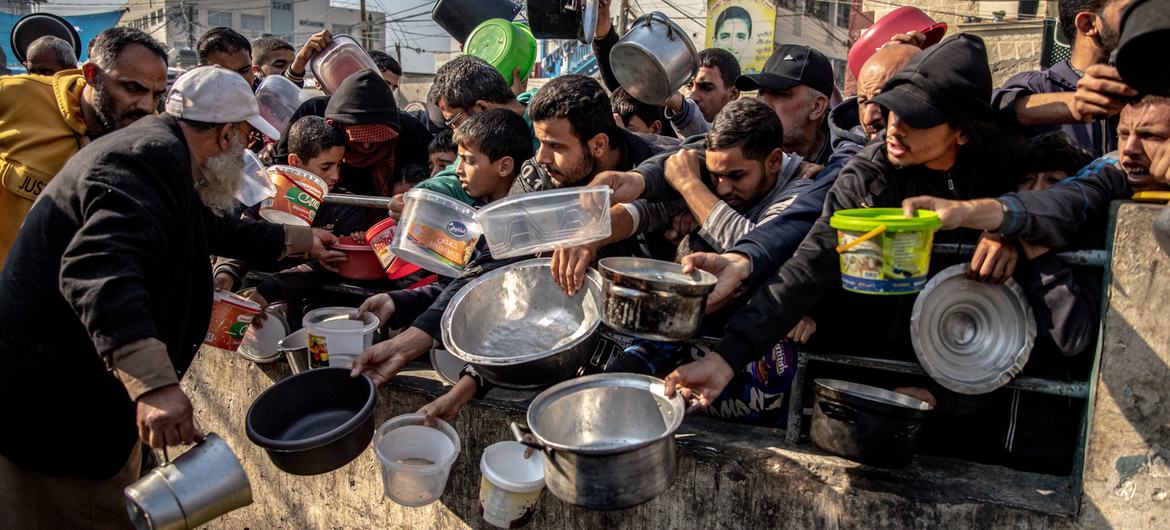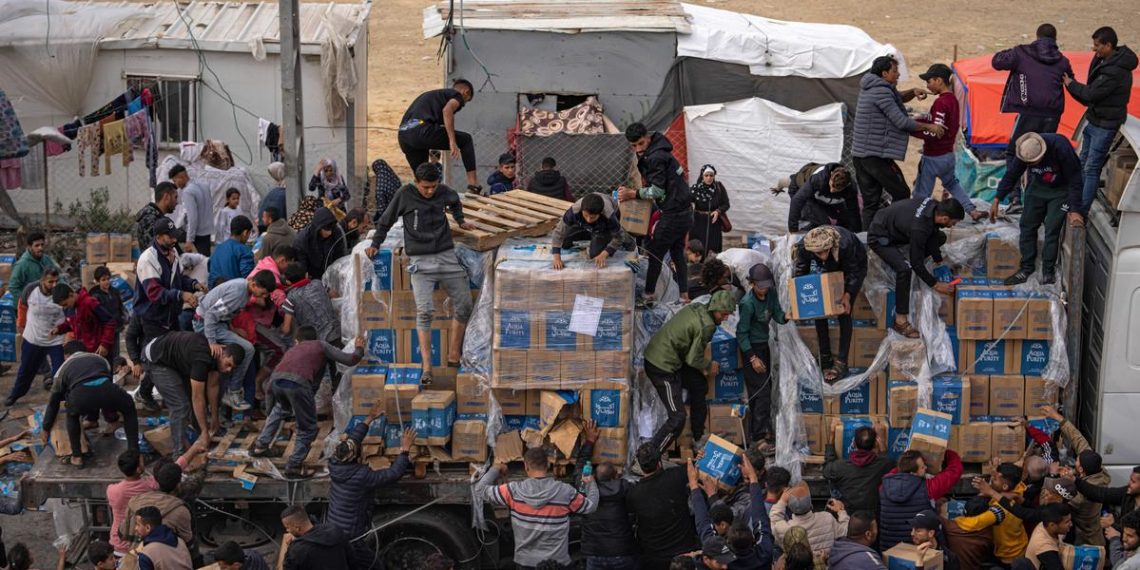In a tent in Rafah, medical workers carefully measure the arm circumferences of young children, identifying signs of severe malnutrition amidst Gaza’s hunger crisis, exacerbated by months of Israeli military operations. Hana Tabash, a mother, recounts her daughter’s weight plummeting from 11kg to 7kg since the conflict began, with visible signs of wasting flesh.
Initial data reveals that 5% of children under five in Gaza are now acutely malnourished, according to the UN humanitarian office OCHA. Dr. Muhammed Abu Sultan attributes this to poor health conditions and insufficient food access.
Aid agencies accuse Israel of obstructing aid deliveries into Gaza, particularly in northern areas, compounding the hunger crisis. Israel refutes claims of limitations on humanitarian aid but acknowledges challenges in UN distribution.
Tabash, like many displaced families, struggles to provide adequate nutrition for her daughter amidst the conflict’s chaos. Despite efforts to administer medical treatments and supplements, finding a solution remains elusive.
The conflict, ignited when Hamas fighters breached border defenses in Israel, has resulted in devastating casualties on both sides. Israeli air and ground offensives have claimed thousands of civilian lives in Gaza, exacerbating the humanitarian crisis.

UNICEF warns that at least 10,000 children in Gaza are at risk of malnutrition-related health issues due to a lack of clean water and adequate nutrition. The long-term consequences on their physical and cognitive development are grave, threatening their future well-being.
As the situation in Gaza deteriorates, international attention focuses on the urgent need for humanitarian aid and a cessation of hostilities to prevent further suffering among the vulnerable population, especially children.





